Vowel Recognition Extra Challenge Worksheets for Ages 3-6
7 filtered results
-
From - To
Introduce a fun and engaging way for young learners to master vowels with our "Vowel Recognition Extra Challenge Worksheets for Ages 3-6". These specially designed printable worksheets offer a mix of activities to boost vowel recognition through appealing visuals and interactive exercises. Ideal for parents and teachers, these resources provide an extra challenge to nurture early reading skills. Perfect for keeping little minds active and enthusiastic about learning, each worksheet aims to improve phonemic awareness in a joyful and educational manner. Give your child a head start in literacy with these delightful and effective learning tools!
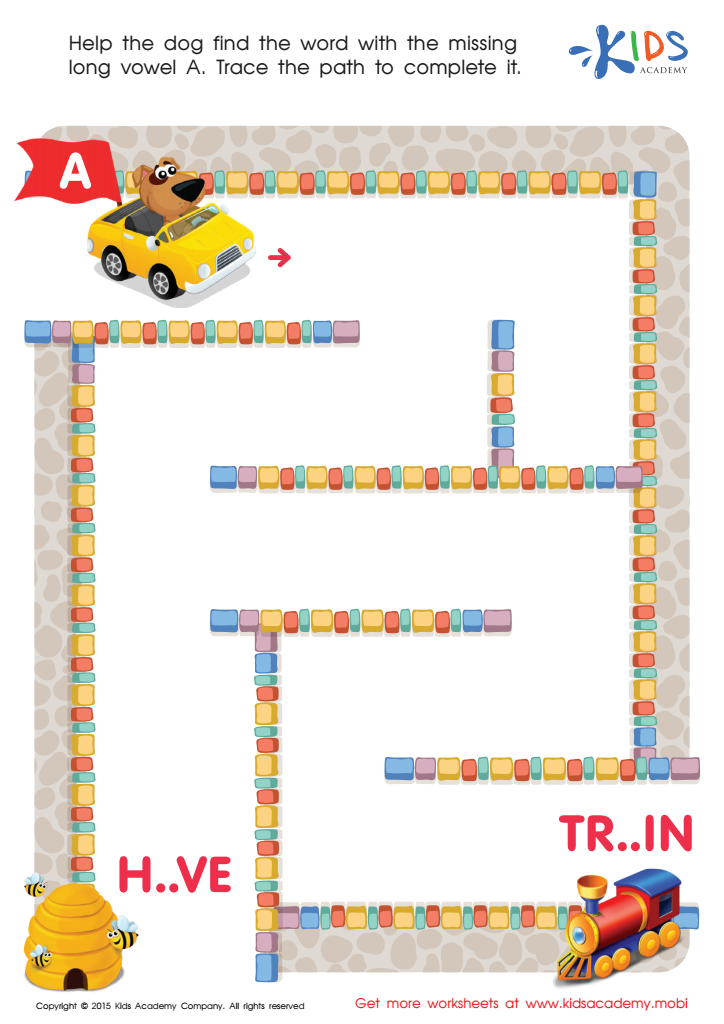

Long Vowel Sound A Worksheet
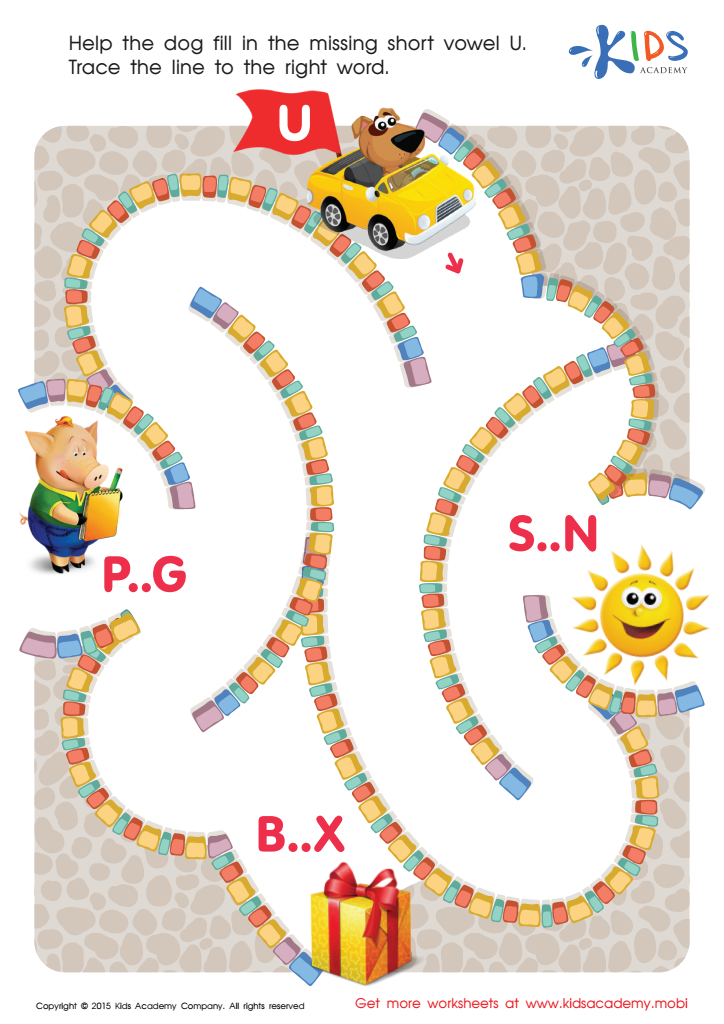

Short Vowel Sound U Worksheet
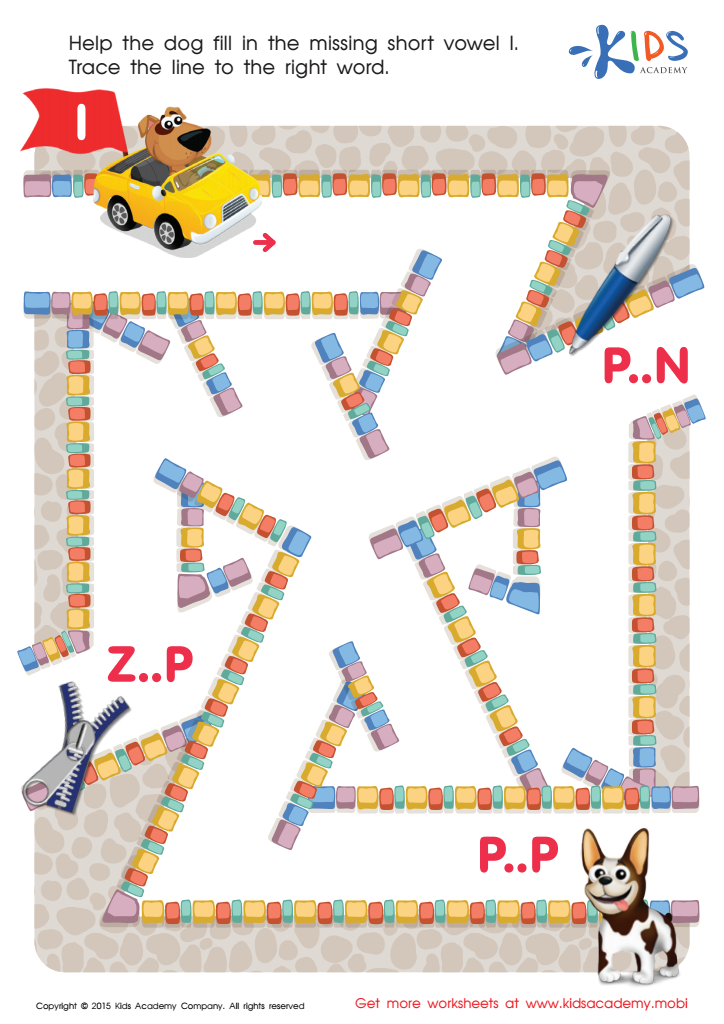

Short Vowel Sound I Worksheet
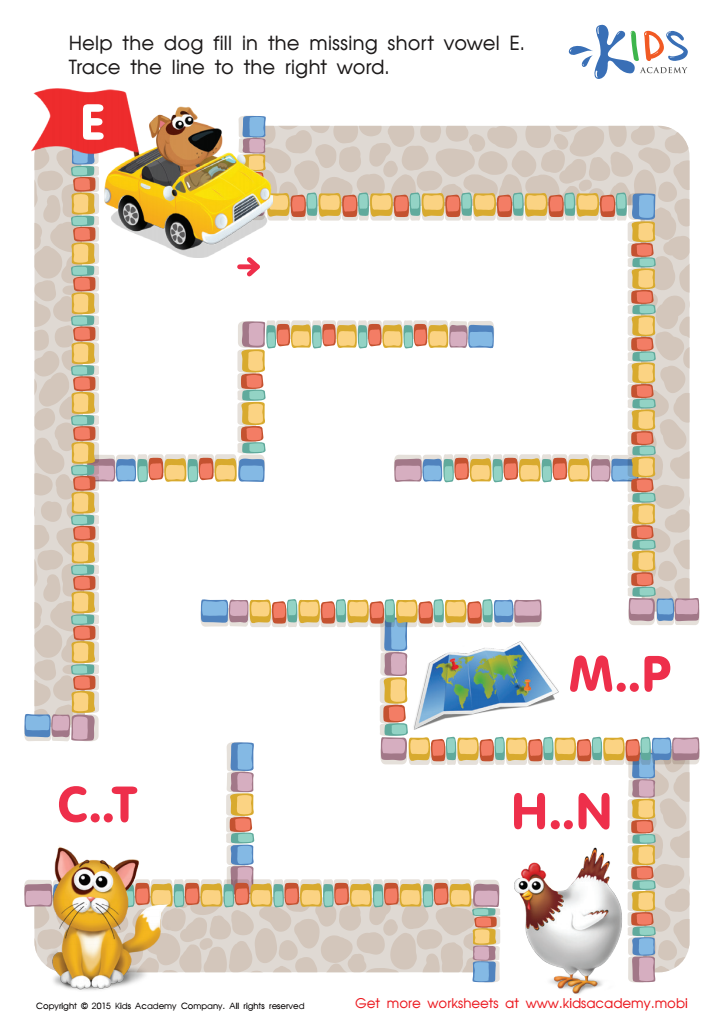

Short Vowel Sound E Worksheet
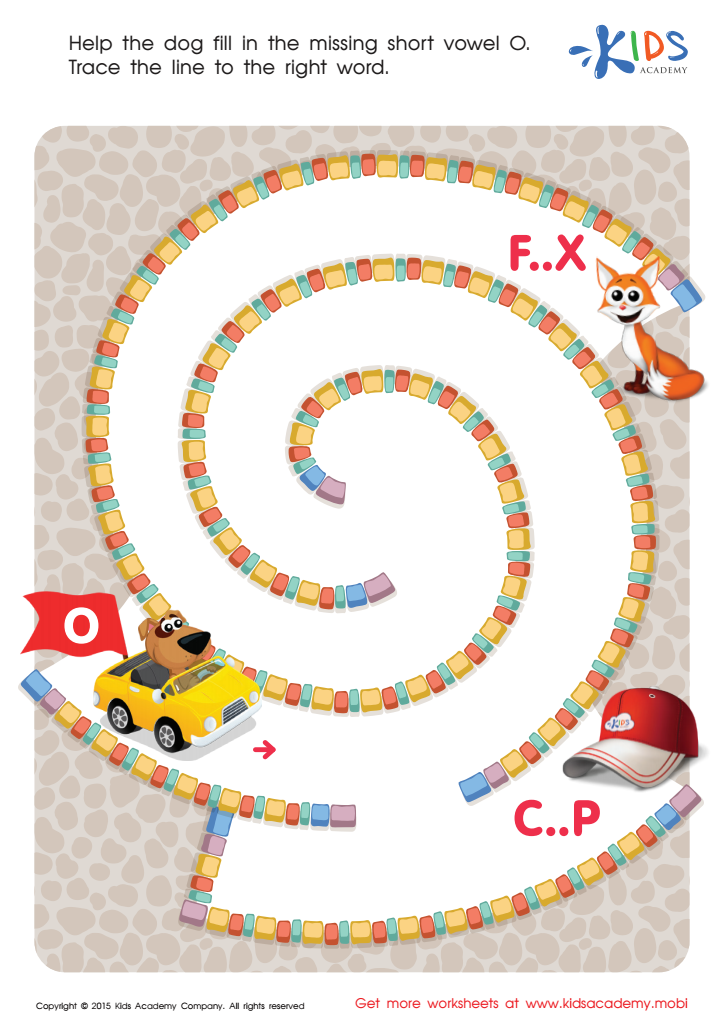

Short Vowel Sound O Worksheet
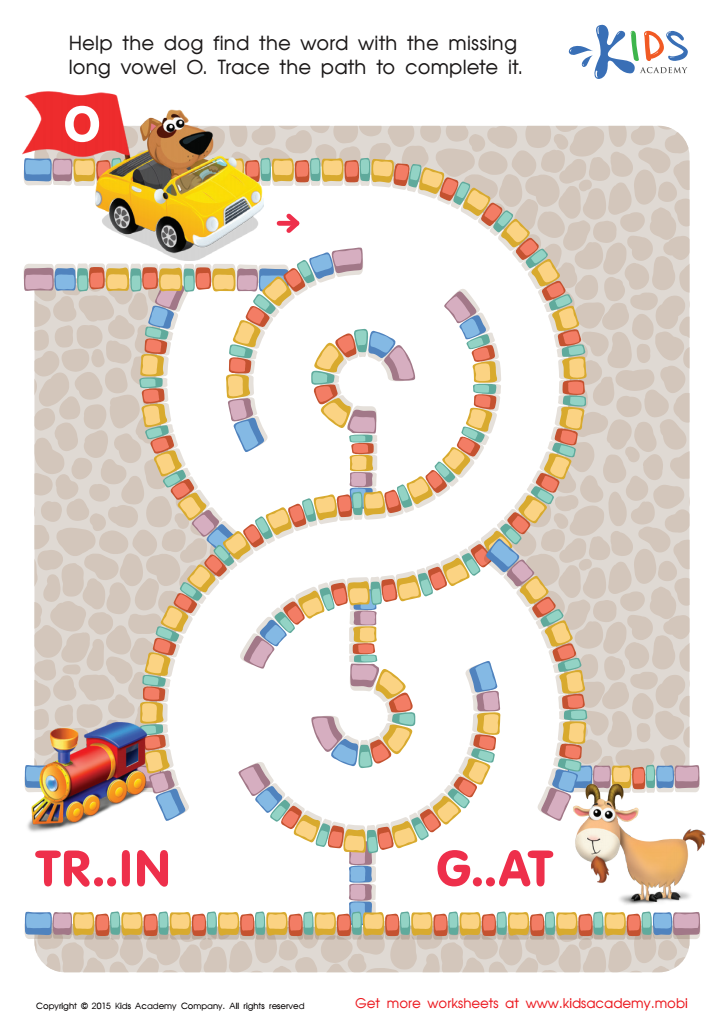

Long Vowel Sound O Worksheet
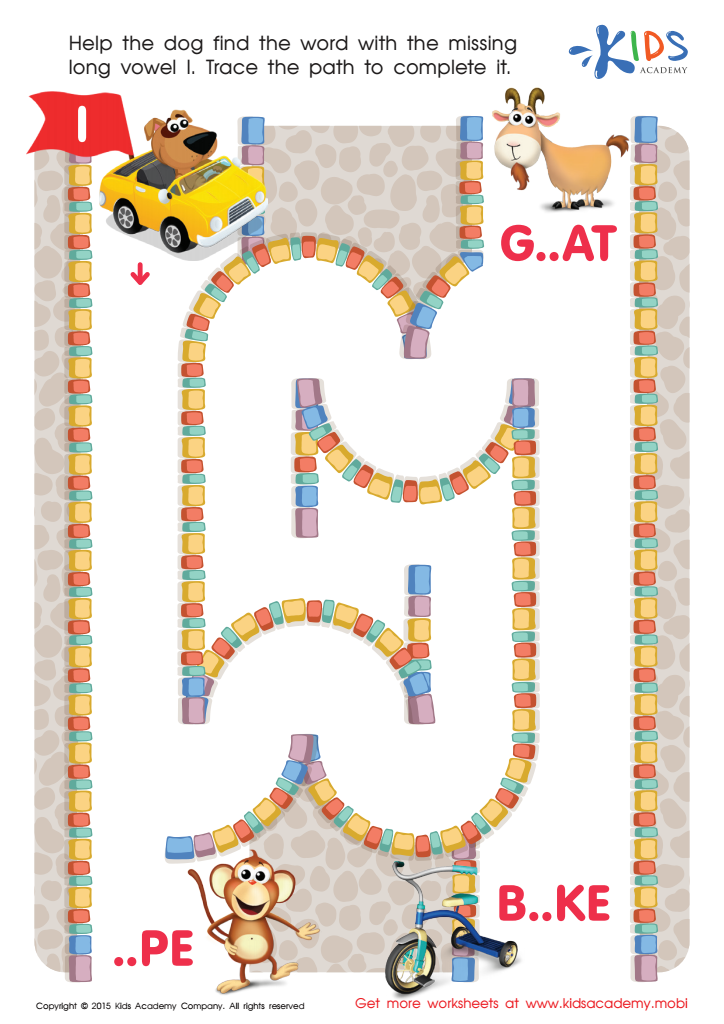

Long Vowel Sound I Worksheet
Vowel recognition is a foundational aspect of early literacy, playing a crucial role in a child's reading and language development. For children ages 3-6, vowel recognition challenges provide significant benefits that both parents and teachers should prioritize. Vowels form the core sounds of words, and being able to identify and articulate these sounds is essential for decoding words, spelling, and developing phonemic awareness.
Early engagement with vowels helps children to differentiate between similar-sounding words and enhances their ability to read syllables accurately. By recognizing vowels, they become better at blending sounds, a critical skill for fluent reading. This foundational skill lays the groundwork for decoding new words, fostering independence and confidence in young readers.
A Vowel Recognition Extra Challenge also adds an element of fun and reinforcement, making the learning process engaging. Through games, songs, and interactive activities, children associate positive experiences with learning, improving retention and fostering a love for reading.
Moreover, challenges tailored for ages 3-6 are developmentally appropriate, ensuring that children are neither under-challenged nor overwhelmed. Consistent practice reinforces classroom learning and provides a platform for parental involvement. Ultimately, by focusing on vowel recognition early, parents and teachers equip children with the tools necessary for long-term success in reading and communication.
 Assign to My Students
Assign to My Students

















